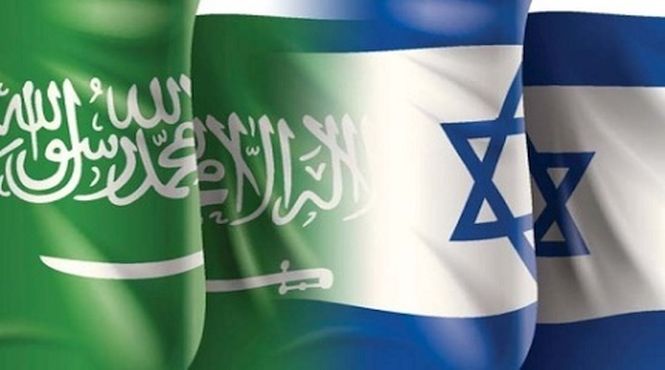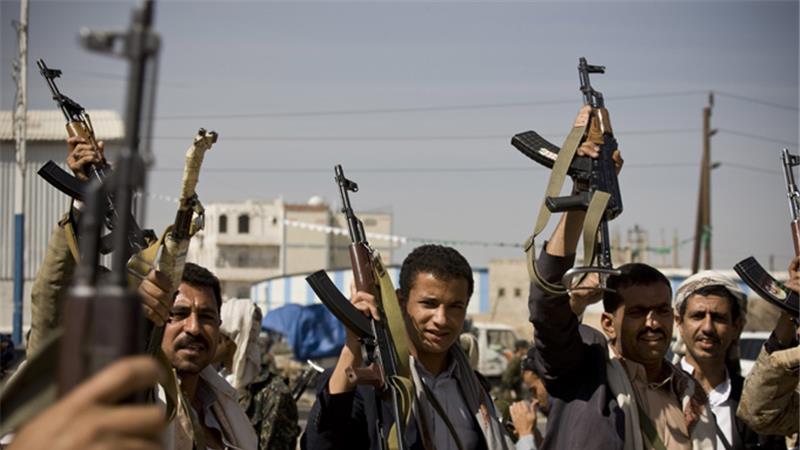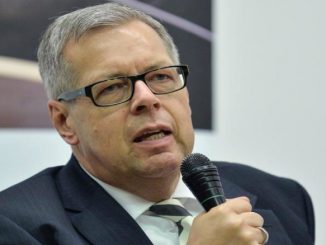
The founder and president of the Washington-based Saudi Public Relation Affairs Committee, founded in March this year, Salman al-Ansari, called clearly for closer economic ties between Israel and Saudi Arabia in an article published earlier this week on The Hill website.
This article was described by the Hebrew newspaper Haaretz as a sign of a thaw in traditional Saudi hostility to Israel.
Although Salman al-Ansari asserted that “the prevailing political discourse might not only indicate that it is in the interest of Saudi Arabia and Israel to form a collaborative alliance, but it is also in the interest of the greater Middle East and their global allies as well. The Hebrew newspaper said that Saudi Arabia “technically” still does not recognize Israel’s existence.
Semi-official reorganization
In fact, Salman Al-Ansari’s article in “The Hill” was not objected by the Saudi official leaders. He also suggested that “rapprochement” between Israel and Saudi Arabia may be found in the common threat that they see in Iran, saying “more solid foundation for establishing deep-rooted ties between the two countries could manifest in the context of a mutually beneficial economic partnership.”
The declaration of Al-Ansari seems to expressing the view of the Kingdom.
According to Haaretz, the visit of the Saudi delegation headed by retired Saudi General Anwar Eshki that included Saudi academics and business people to Israel in July, which focused on religious issues related to diplomacy between the two countries, is a development that would presumably not have been possible in tightly controlled Saudi Arabia without government consent.
The Israeli Jerusalem Post newspaper, which is published in English, had also confirmed that Saudi Arabia lifted the surveillance and ban imposed on the Israeli press.
it is noteworthy that in a country where the press is also tightly controlled,the Saudi Gazette suggested last month that Palestinian President Mahmoud Abbas may have reacted too quickly in turning down a public invitation that Israeli Prime Minister Benjamin Netanyahu extended to him to address the Knesset.
Elliott Abrams,a senior fellow for Middle Eastern studies at the Council on Foreign Relation, reacted on the new Saudi politics towards Israel saying “it is an entirely positive development, and one must give credit to the Saudi government. The Saudis keep saying there is change and reform underway in the kingdom. This is a sign that they mean it.”
“This is not so small a step” Elliot said to describe the Saudi initiative of lifting ban imposed for years on the Israeli press, and told Newsweek “Reading such sites will give Saudis a view of Middle Eastern, and Israeli-Palestinian, affairs that’s quite different from their Foreign Ministry’s official line.”
According to Al-Akhbar, a Lebanese newspaper, the Kingdom of Saudi Arabia is gradually endorsing its relations with Israel and widening these relations’ scope by moving from the political communication calls and mutual visits into media normalization. his indicates that things will further escalate in a way as to prepare for subsequent steps.
Saudi Arabia plans to drop hostility to Israel
on April 15, The American website “Your News wire” published Documents leaked in 2014 from a senior military official linked to the left-wing “Meretz” party, appear to show an aligned military cooperation between Israel and Saudi Arabia in the Red Sea.
these Documents have included an agreement which is concluded to Saudi Arabia and Israel management on Bab el-Mandeb Strait, the Gulf of Aden and the Suez Canal and the Red Sea littoral countries as well.
Months after this publication specially on September, Israel business news “Globes“, published an article titled: “Saudi Arabia pivoting towards Israel?”
Through this article, the Israeli website cited a POLITICO magazine report that was about the retired US diplomat Zalmay Khalilzad’s recent trip to Saudi Arabia and the startling, indeed astonishing, changes he found there.
Zalmay Khalilzad reported that the Saudis stated with unusual directness that they do not regard Israel as an enemy, said that they did emphasize the need for progress on the Palestinian issue, but the tone on this subject was noticeably less emotional than in the past.
It is noteworthy that on August, commenting on the visit of Saudi delegation headed by retired Saudi General to Ramallah, a former Israeli minister,told Jerusalem Post “Israelis could be able to visit the Gulf state “much sooner than you dream about.”
Read also: an article by Fahmi Howeidi, a prominent Egyptian columnist , on Anwar Eshki’s visit to Israel, that was translated from Arabic and published by the Middle East Observer.



